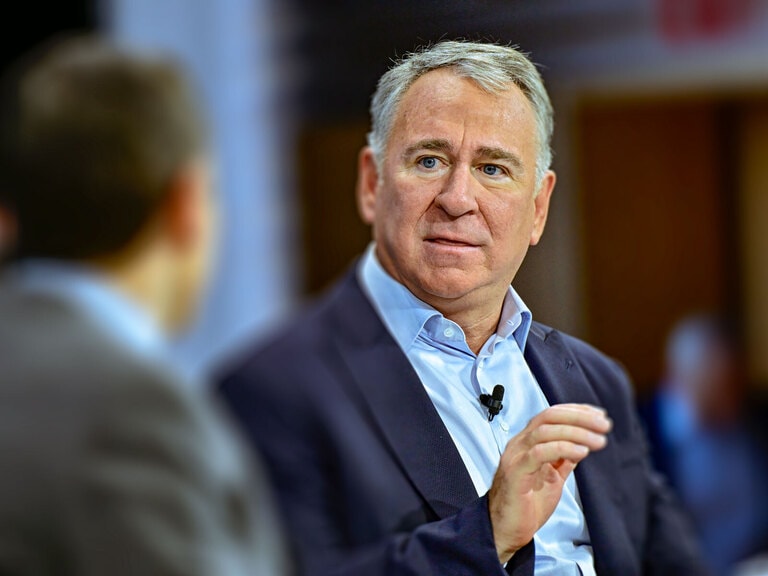The autonomous vehicle industry has been plagued by issues in recent months, including a recall at Alphabet’s Waymo, which have weighed on thematic funds like the Ark Autonomous Tech & Robotics ETF. OPTO has selected five autonomous vehicle stocks to watch.
- Tesla chief Elon Musk has denied that the EV maker’s full self-driving software was to blame for a fatal crash in 2022.
- GM’s autonomous vehicle subsidiary Cruise has appointed its first Chief of Safety — a former Apple executive.
- Geely deployed 11 satellites earlier this month to improve navigation for its autonomous vehicles.
Tesla
The Full Self-Driving Stock
Tesla [TSLA] CEO Elon Musk has claimed that full self-driving (FSD) was not to blame for the death of a driver in a crash back in 2022. “He was not on FSD. The software had unfortunately never been downloaded. I say ‘unfortunately’, because the accident probably would not have happened if FSD had been engaged,” Musk wrote in an X post last week. The Tesla share price has reversed 19.5% year-to-date through 20 February.
GM
The Chief Safety Officer Stock
General Motors [GM] autonomous vehicle subsidiary Cruise has poached a former Apple [AAPL] executive, linked to the Cupertino company’s car concept. Steve Kenner is to become Cruise’s first Chief of Safety, a role that will help rehabilitate the company’s image, following a crash in which one its robotaxis dragged a pedestrian last October. “Safety requires that every team within a company work together to put passengers and other road users first. That partnership must include regulators, and I look forward to earning their trust,” Kenner said in a press release.
Alphabet
The Software Recall Stock
Alphabet’s [GOOGL] car unit Waymo issued a voluntary recall of its self-driving software last week, on the back of an incident last December in which two Waymo vehicles collided with the same pick-up truck on the same night. “This voluntary recall reflects how seriously we take our responsibility to safely deploy our technology and to transparently communicate with the public,” stressed Waymo’s Chief Safety Officer Mauricio Peña in a blogpost published on 13 February.
Geely
The Satellite Deployment Stock
Geely’s [0175:HK] Geespace launched 11 low-earth orbit satellites earlier this month, adding to the nine it launched in June 2022, expanding the Chinese automaker’s capacity to provide accurate navigation for its Zeekr 001 FR, Zeekr 007 and Geely Galaxy E8 models. The aim is to have launched 72 satellites in total by 2025, while a second planned phase should see the constellation extended to 168 satellites. “This expansion is set to provide highly reliable and cost-effective satellite services to… the mobility sector focusing on autonomous drive,” Geespace said in a statement.
Kia
The Robotaxi Stock
Kia [000270:KS] unveiled its range of electric cargo carriers, including its robotaxi model, at the Consumer Electronics Show in Las Vegas in January. The Platform Beyond Vehicle (PBV) range “represents our vision of going beyond the traditional concept of automobiles by fulfilling the unmet needs of diverse customers and communities,” said Kia President and CEO Ho Sung Song in a press release. The automaker is looking to establish partnerships with mobility companies like Uber [UBER] for future commercial uses of the PBV range.
Another Way to Invest in Autonomous Vehicles
The Global X Autonomous & Electric Vehicles ETF
The Global X Autonomous & Electric Vehicles ETF [DRIV] holds all five stocks as of 16 February. As of 31 January, consumer discretionary and information technology (IT) have been allocated 37.5% and 29.1% of the portfolio, while industrials and materials have weightings of 16% and 12.2% respectively; communication services and energy have single-digit allocations. The fund is up 0.7% in the past year through 20 February, and up 1.1% in the past six months.
The ARK Autonomous Technology & Robotics ETF [ARKQ] holds Tesla and Alphabet as of 16 February. As of 31 December, IT and industrials have been allocated 37.5% and 35.5% of the portfolio, while consumer discretionary has been allocated 15.1%; communication services, energy and healthcare have single-digit weightings. The fund is up 9.8% in the past year and up 6.6% in the past six months.
Continue reading for FREE
- Includes free newsletter updates, unsubscribe anytime. Privacy policy





